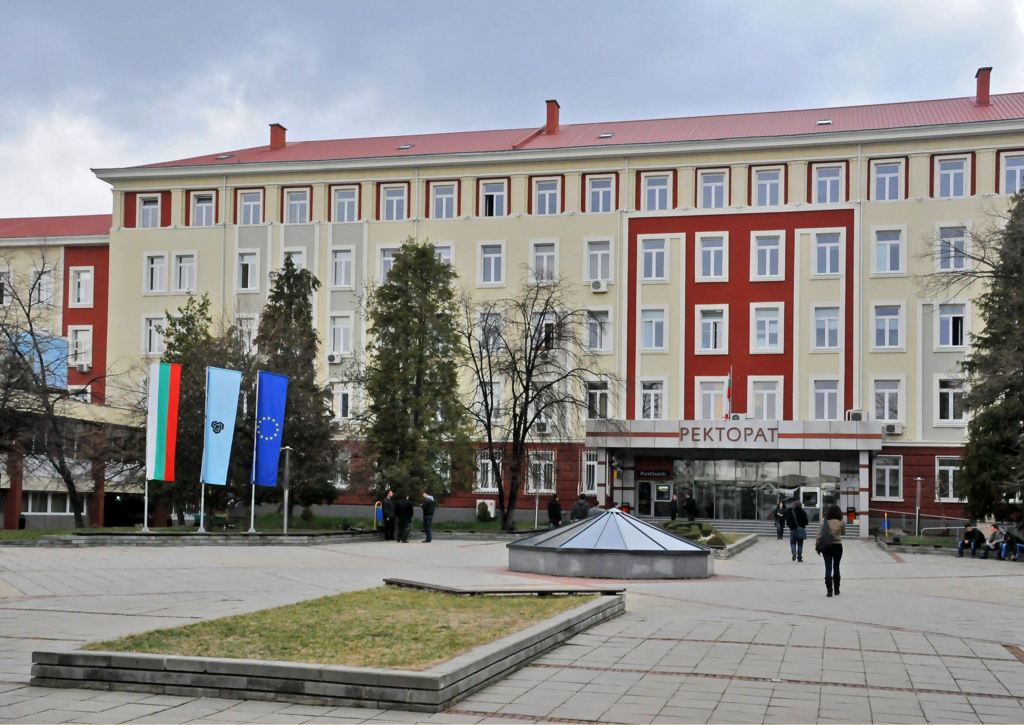Intro
The Technical University of Sofia is Bulgaria’s largest technical university. It successfully acquired the highest accreditation grade in the country. This allows it to establish educational standards and identifies national goals for education and scientific growth.
The Technical University of Sofia belongs to an alliance called the European University of Technology (EUt+), which includes 8 universities that share mutual goals and ambitions. These universities include the University of Applied Sciences (Germany), the Polytechnic University of Cartagena (Spain), the Technical University of Cluj-Napoca (Romania), and the list goes on and involves universities from Latvia, Cyprus, Ireland, and France,
The university has gained a remarkable reputation in multiple technical fields, such as renewable energy, virtual engineering, energy efficiency, engineering ecology and engineering design, and nanotechnologies. This explains the long-term educational and research collaboration that this university has with other high-tech firms and institutions. The university organizes Career Days that attract around 70 Bulgarian and foreign companies each year.
Location of Technical University
Sofia Technical University has five campuses located in Sofia, Plovdiv, Sliven, Botevgrad, and Kazanlak. Sofia’s Central Campus consists of 14 different buildings. It is important to mention here that Sofia is Bulgaria’s capital and largest metropolis. Some consider Sofia as Bulgaria’s economic center because it is home to the majority of the country’s significant Bulgarian and foreign corporations. Plovdiv is Bulgaria’s second-largest city. Plovdiv has been chosen as Bulgaria’s 2019 European Capital of Culture. Sliven is Bulgaria’s eighth-largest city, approximately 300 kilometers east of Sofia.
History
The Technical University of Sofia is Bulgaria’s first higher technical school as it was preparing engineering specialists for over 66 years. In fact, over 100 thousand engineers have graduated from it during the last decades and have found work in both Bulgaria and other countries. The University is the successor of the Higher Technical Institution in Sofia, which opened its doors for the first time back in 1942 and was renamed State Polytechnic in 1945.
The National Assembly of Bulgaria released a decree in 1945 to initiate the formation of a school named “State Polytechnic” with a mechanical engineering faculty that has 4 different divisions, including mechanical engineering, electrical engineering, geology, and mining.
The State Polytechnic was divided into four new higher institutes in 1953. The term “Higher” was added to the university’s name two years later, in 1955. A faculty of transport and communications was established in 1959, and in 1963, it was divided into two faculties: faculty of radio electronics and faculty of transport.
In 1987, the faculty of radio electronics was separated into three faculties: electronic engineering and technology, telecommunications, and computer systems and control. The faculty of mechanical engineering was separated in 1963 into two new faculties: machine technology and power engineering and power machines.
The management faculty was established in 1991. Before people know the Technical University of Sofia by its current name, they were calling it the “Higher Institute of Mechanical and Electrical Engineering” before 1991.
Faculties
The Technical University of Sofia has five campuses located in different cities, including Sofia, Plovdiv, Sliven, Botevgrad, and Kazanlak. Sofia’s Central Campus consists of 14 buildings.
The Sofia campus includes the following faculties:
- Faculty of Communications and Communications technologies
- Faculty of Electronic Engineering and Technology
- Faculty of Power Engineering and Power Machines
- Faculty of Applied Mathematics and Informatics
- Faculty of Computer Systems and Control
- Faculty of Mechanical Engineering
- Faculty of Electrical Engineering
- Faculty of Machine Technology
- Faculty of Automation
- Faculty of Management
- Faculty of Transport
- Department of Applied Physics
The Plovdiv campus includes the following faculties:
- Faculty of Electronics and Automation
- Faculty of Mechanical and Device Engineering
Admission
The Technical University of Sofia has a strict admission policy that focuses heavily on entrance exams and students’ previous academic grades and ratings. The admission rate for this university is between 30-40%, making it an extremely selective university. Depending on the study program you choose, there may be additional admission requirements. You may, for example, be required to pass an admission exam or present a language certificate.
Students from all around the world can apply. International students must provide a copy of their high school diploma and a medical certificate, among other documents. Keep in mind that the application process differs for EU and non-EU candidates.
Student Life & Living Expenses
The Technical University of Sofia has a fantastic student life! To keep students occupied, the university hosts a variety of cultural and sporting activities, as well as important career days and internships. In general, life in Sofia is incredibly dynamic as there are limitless leisure and employment opportunities in Bulgaria’s capital! The cost of living is reasonable in the city, so living in Bulgaria’s capital city shouldn’t deplete your money!
In addition, students can form groups and networks based on mutual hobbies and interests, adding more flavors and activities to student life at the institution. Students at the Technical University of Sofia are diverse as they come from different backgrounds. Diversity in the university also increases as the university offers courses in English, German, and French. Furthermore, meeting students from other institutions is simple because the Technical University of Sofia is located in the renowned “Studentski grad” neighborhood, which is home to the majority of Sofia’s universities.
Student discounts are common at sports facilities and museums. Restaurants and food stores are also cheaper than similar sites in Western Europe. When it comes to accommodation, renting a modern apartment in the city center would cost you roughly 400 EUR per month. This is surely inexpensive compared to renting in other European countries.

